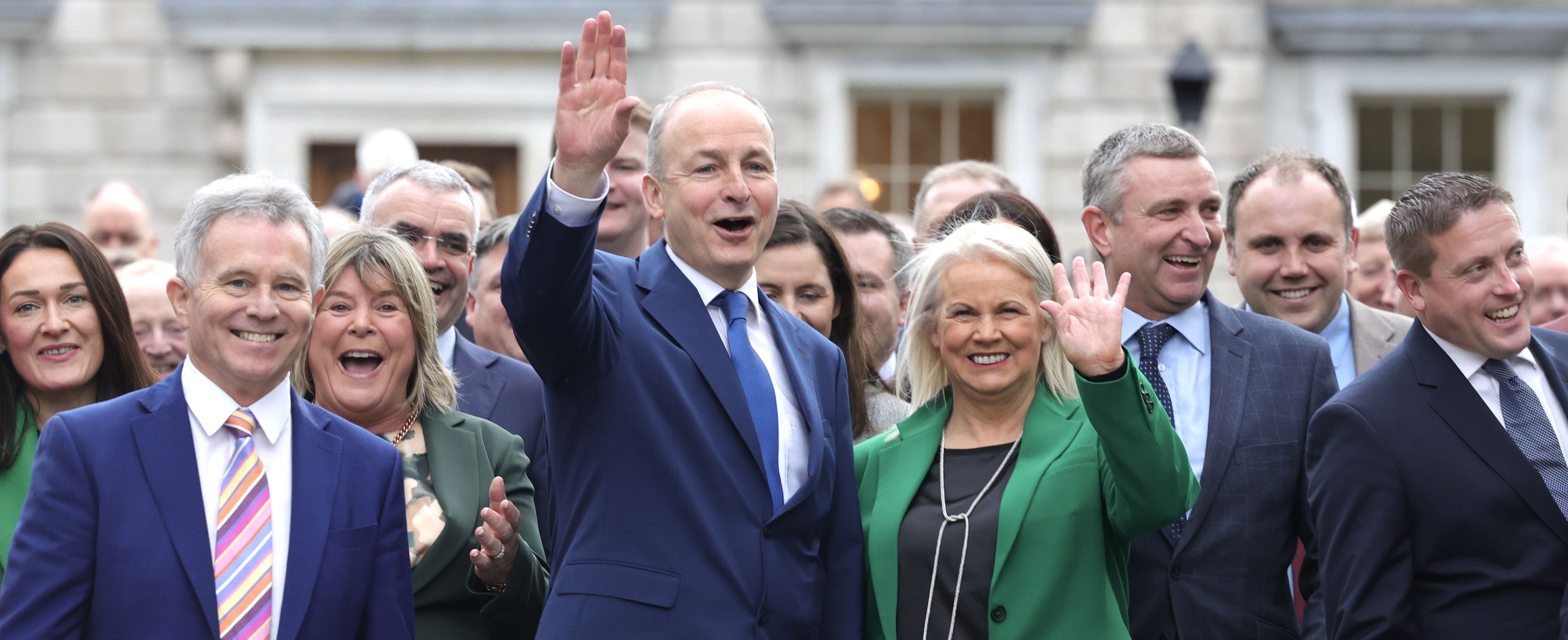IN best Late Late Show fashion, there was something for everybody in the results of last Friday’s election down South when it came to the main three parties.
Fianna Fáil came first in the popular vote and also claimed the highest number of seats, so leader Micheál Martin’s grin was not surprisingly a wide one when the last vote was counted.
After a shocking local election result and a seemingly endless run of negative stories, Sinn Féin was runner-up in the seat count; and while that was far from the establishment-shaking performance that the days of mid-30s polling promised, it was not only a steadying of the wave-tossed ship by Mary Lou McDonald, but a safe docking in a handy harbour.
For his part, Fine Gael leader Simon Harris will of course be disappointed to have finished a hefty ten seats behind his recent and now prospective coalition partner, but he’ll be more relieved that his party wasn’t punished more severely after a frankly disastrous election campaign saturated in hubris and complacency.
The political tick-tacking is in full swing as the two formerly monolithic Civil War parties are once again reduced to joining forces in an attempt to convince smaller parties and/or independents that five years of Mercs and perks are worth the future electoral battering that is invariably the fate of the coalition mudguard.
The Greens are out of the picture, having suffered virtual wipeout for having failed to learn that lesson. The Labour Party, meanwhile, which had a suprisingly good day at the polls, is making noises that could suggest that its own coalition sob story from the past may be foremost in the thoughts of leader Ivana Bacik. The Social Democrats, whose leader Holly Cairns is celebrating a new baby as well as an impressive seat haul, appear to be even more reluctant to come running when Micheál and Simon whistle. But initial reluctance and even outright refusals are a familiar and predictable negotiation ploy and only time will tell whether Ms Bacik and Ms Cairns are able to resist the blandishments not only of FF/FG but of their new intake of TDs, more than a few of whom will be pantingly enthusiastic about a place in government.
Throw into that mix the apparent reluctance of a significantly strengthened Micheál Martin to return to the rotating Taoiseach model and the prospect of a return to a FF/FG-led coalition seems just a tad less certain than the pundits and observers would have us believe.
Against the background of the near-certainty of a continuance of FF/FG hegemony, Ms McDonald is gamely insisting that her discussions with parties and independents ‘of the left’ can carve a route for her to the Taoiseach’s office. It’s an understandable conceit, ensuring as it does that while the FF/FG wooing of potential partners remains by far the biggest political show in town, it’s not the only one.
But the survival of the status quo seems as inevitable as it is discouraging.







